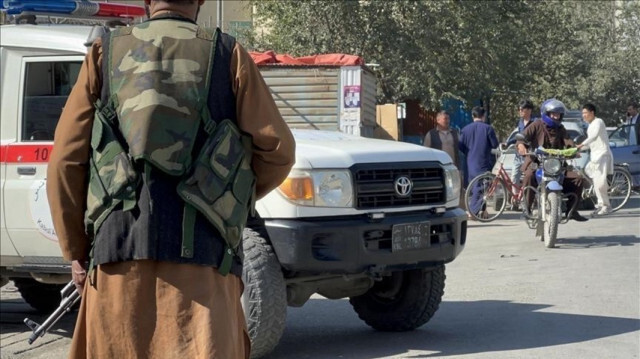
Funding helped avert ‘a worsening of crisis' over past 3 years, including famine, says Office for Coordination of Humanitarian Affairs
Afghanistan has received around $6.7 billion in humanitarian aid since the Taliban returned to rule in Kabul in August 2021, according to a report released by the UN Office for the Coordination of Humanitarian Affairs (OCHA).
With resources peaking at nearly $3.3 billion in 2022, the funding coincided with record-high humanitarian needs following the transition – reaching an unprecedented 29.2 million people in need in 2023, the report "Afghanistan Humanitarian Response Impact Analysis 2021-24” released on Sunday said.
The report cited “severe” economic decline brought about by disruption to the banking sector and the abrupt suspension of bilateral development cooperation, rising food insecurity and poverty levels, the worst drought in 30 years, and concerns over a potential collapse of the public health system, as key reasons behind increasing number of people in need.
Although the situation has stabilized since then, with a significant – almost total – reduction in conflict-related displacement, and fragile improvements in food insecurity and poverty, Afghanistan remains “extremely” vulnerable to natural disasters, the effects of climate change, and geopolitical dynamics, all of which can generate new needs and exacerbate existing ones in an instant, the report added.
Citing reported promulgation of the Ministry for the Promotion of Virtue and the Prevention of Vice's Law, the report said that the increasing restrictions on women reinforces the extent to which Afghanistan remains at its “core a protection crisis.”
The assistance, it went on to say, has helped avert “a worsening of the crisis” over the past three years, including famine.
With most traditional donors no longer physically present in Afghanistan and lacking a direct channel of communication with the “de facto authorities (DfA)” – a reference to the Taliban administration, the humanitarian community has served as the primary focal point for operational and strategic dialogue with Kabul.
It said humanitarian community was the "first line of defense for Afghan women and girls amid growing restrictions on their rights."
Hello, the comments you share on our site are a valuable resource for other users. Please respect other users and different opinions. Do not use rude, offensive, derogatory, or discriminatory language.
The floor is all yours.








